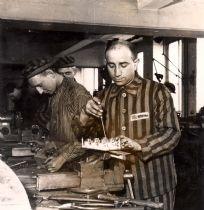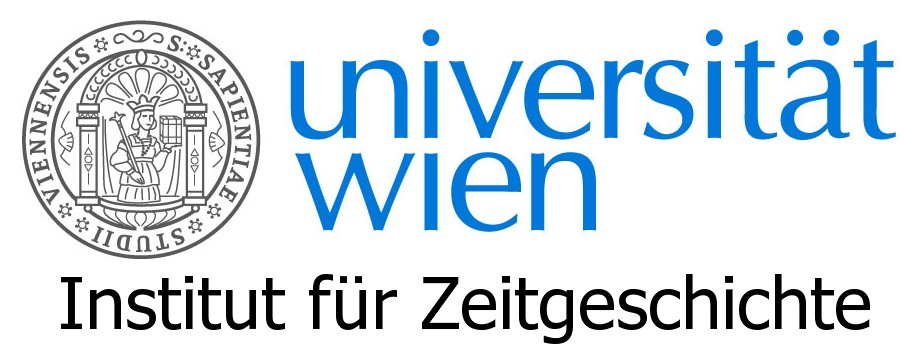Veranstaltungen
Mit seinen wissenschaftlichen Veranstaltungen versucht das Wiener Wiesenthal Institut für Holocaust-Studien (VWI) die neuesten Ergebnisse im Bereich der Holocaust-, Genozid- und Rassismusforschung einem breiteren ebenso wie einem ausgewiesenen Fachpublikum regelmäßig näher zu bringen. Die unterschiedlichen Formate dieser über einen engen Wissenschaftsbegriff hinausweisenden Veranstaltungen, die von in einem kleinen Rahmen gehaltenen gehaltenen Vorträgen, den Simon Wiesenthal Lectures über für ein Fachpublikum interessante Workshops bis zu großen internationalen Tagungen, den Simon Wiesenthal Conferences reichen, spiegeln das breite Tätigkeitsfeld des Instituts wider.
Präsentationen von ausgewählten Neuerscheinungen zu den einschlägigen Themen des Instituts, Interventionen im öffentlichen Raum, die Filmreihe VWI Visuals und die Fachkolloquien der Fellows runden die Palette der Veranstaltungen des Instituts weiter ab.
| VWI invites/goes to... | |||
| Susanne Barth: The Oberschlesische Hydrierwerke AG and the Auschwitz Subcamp of Blechhammer 1939-1945 | |||
Mittwoch, 9. März 2016, 18:00 - 20:00 Institut für Zeitgeschichte der Universität Wien, Seminarraum 2, Spitalgasse 2–4, Hof 1, 1090 Wien
|
|||
VWI goes to the University of Vienna Based on newly-accessible source material, this dissertation project investigates the history of the Oberschlesische Hydrierwerke AG (OHW), a synthetic fuel plant founded in Blechhammer (today Blachownia/Kędzierzyn-Koźle, Upper Silesia) by the Reich Office for Economic Development in 1939. The Four Year Plan enterprise not only formed part of the Third Reich’s war effort and striving for autarchy from imported goods, but was also meant to contribute to the regime’s racial policy of ‘Germanising’ Upper Silesia. Conscriptions to the front, however, led to the replacement of Germans with foreign workers from all over Nazi-occupied Europe and the Axis states, as well as Allied prisoners of war and Jewish forced labourers.
This research project examines the plant’s ideological and economic function in war-time Upper Silesia as well as the industrial elite’s cooperation with the Schmelt organization and the Auschwitz extermination camp, while at the same time trying to reconstruct the daily life and suffering of Blechhammer prisoners. Comments by Sybille Steinbacher Susanne Barth, currently Junior Fellow at the VWI, is a PhD candidate at the University of Olden-burg (Germany). In 2012, she was an EHRI Fellow at the Netherland’s Institute for War, Holocaust and Genocide Studies (NIOD) in Amsterdam and a Saul Kagan Claims Conference Academic Fel-low in Advanced Shoah Studies in 2012–2013. Sybille Steinbacher Click here to download the invitation as a PDF file. In cooperation with: |
|||






 By order of Albert Speer, the
By order of Albert Speer, the 